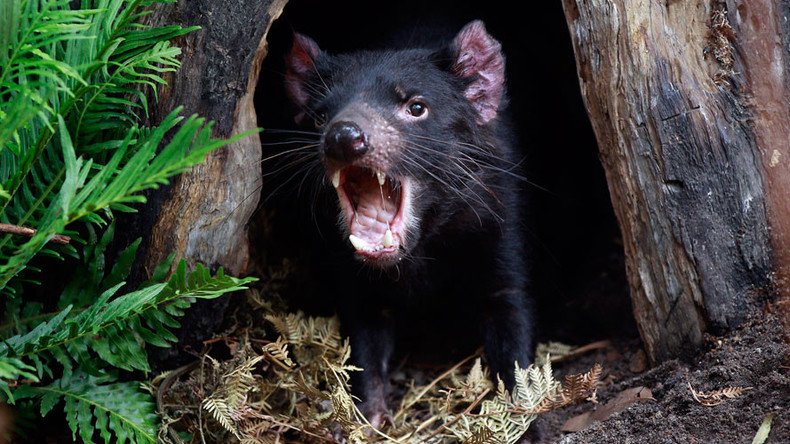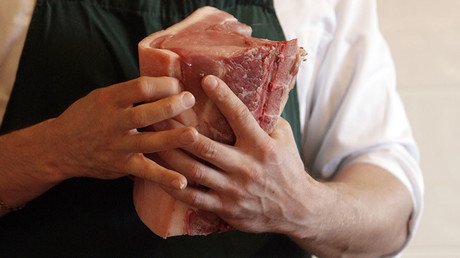Tasmanian devil’s milk could be key to combating drug-resistant superbugs – study

Superbugs have proven to be too stubborn for antibiotics, but it appears a much simpler solution could be available. Scientists have found that milk from Tasmanian devils have the power to kill drug-resistant bacteria.
Scientists at the University of Sydney turned to the marsupials because of their biology – particularly because the underdeveloped young have an immature immune system when they are born, yet survive in their mother's pouch by suckling milk for about four months.
This led the researchers to believe the milk made by Tasmanian devils was full of beneficial qualities which help their vulnerable young survive and thrive.
“There are potential pathogens present in the devil microbiome, so the fact that the under-developed young in the pouch don't get sick was a clue something interesting was going on,” researcher and PhD candidate Emma Peel said, as quoted by the Sydney Morning Herald. “That's what inspired our most recent study.”
When they tested the milk, they found several peptides called cathelicidins, a natural kind of antibiotic. In total, the animals were found to have six cathelicidins – compared to the singular cathelicidin found in humans, known as LL-37.
The researchers then applied the peptides found in the milk to drug-resistant bacteria, including methicillin-resistant staphylococcus aureus (MRSA). The peptides were also applied to enterococcus, which has been found to be resistant to the powerful vancomycin antibiotic.
“Vancomycin is a pretty potent antibiotic and if a bug is resistant to that, then there aren't a lot of drug options available to you,” Peel said.
However, the researchers found that perhaps traditional drugs aren't the answer at all, because in both cases the bacteria died after being introduced to the peptides.
“We showed that these devil peptides kill multi-drug resistant bacteria, which is really cool,” Peel said.
The finding, which could lead to new drugs being developed to combat superbugs, is a huge breakthrough in the fight against the powerful bacteria, which a recent study concluded could kill 10 million people a year by 2050.
The research was published in Nature's Scientific Reports journal.
Meanwhile, University of Sydney geneticist Kathy Belov says a study is also underway with koalas, as preliminary results show that similar peptides are present in koala milk.
“Australia has lots of marsupials which would have evolved to protect their joeys [babies] from different pathogens in different environments,” Belov said. “There has to be a treasure trove of amazing peptides out there to be discovered.”













